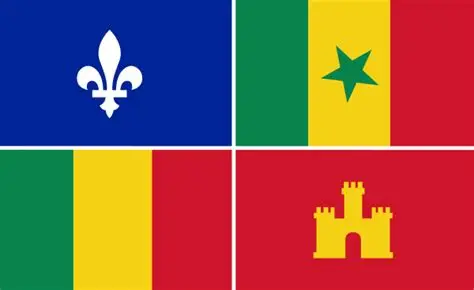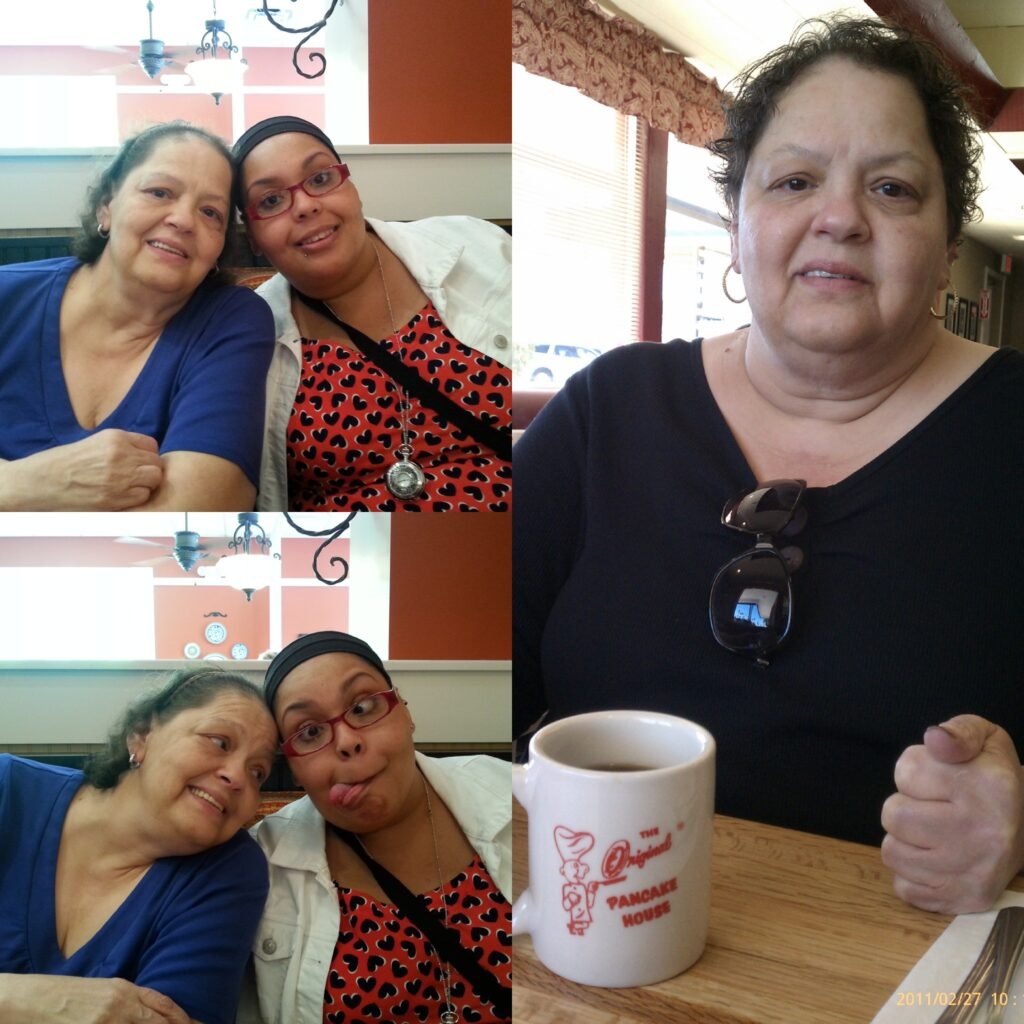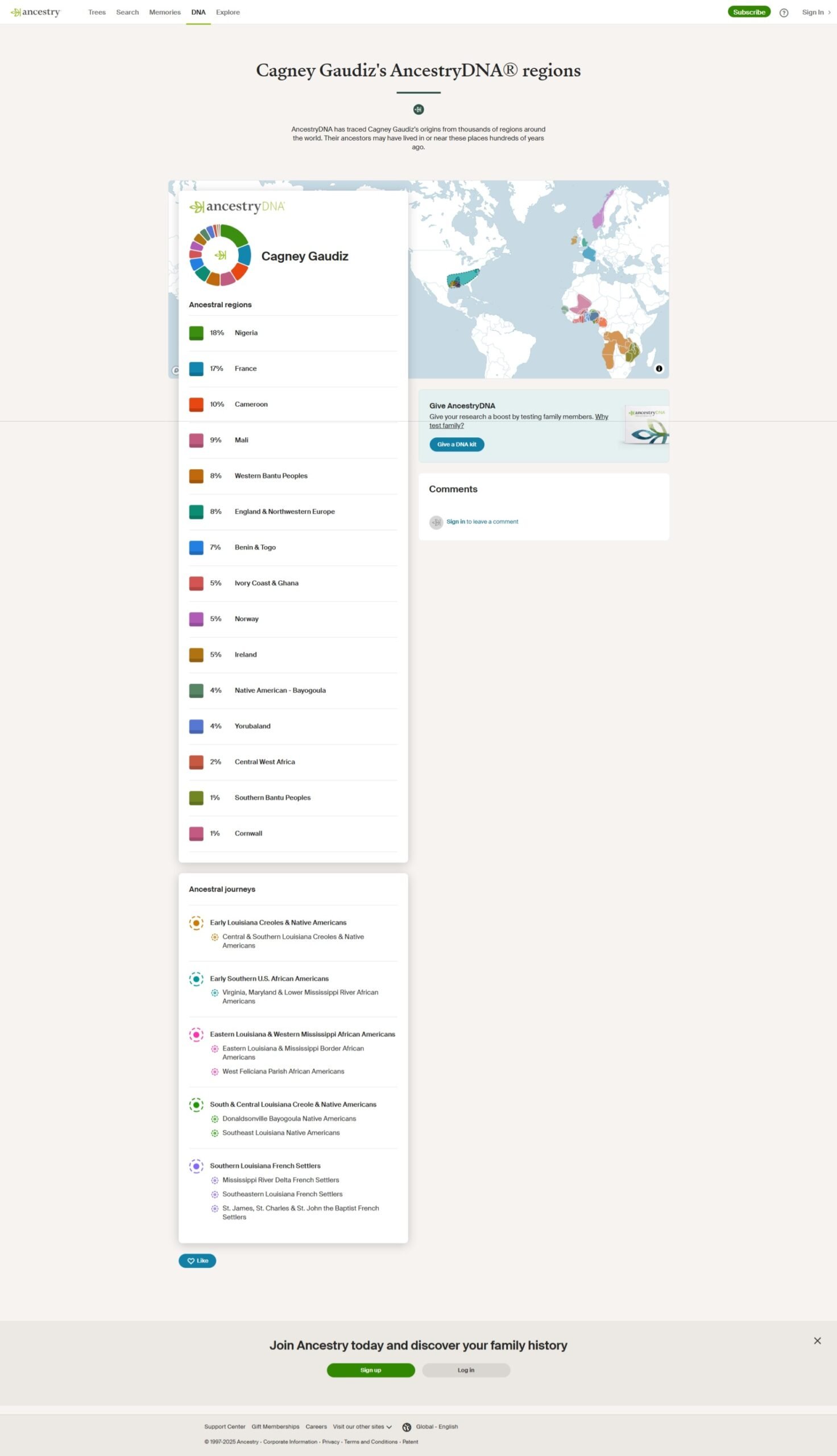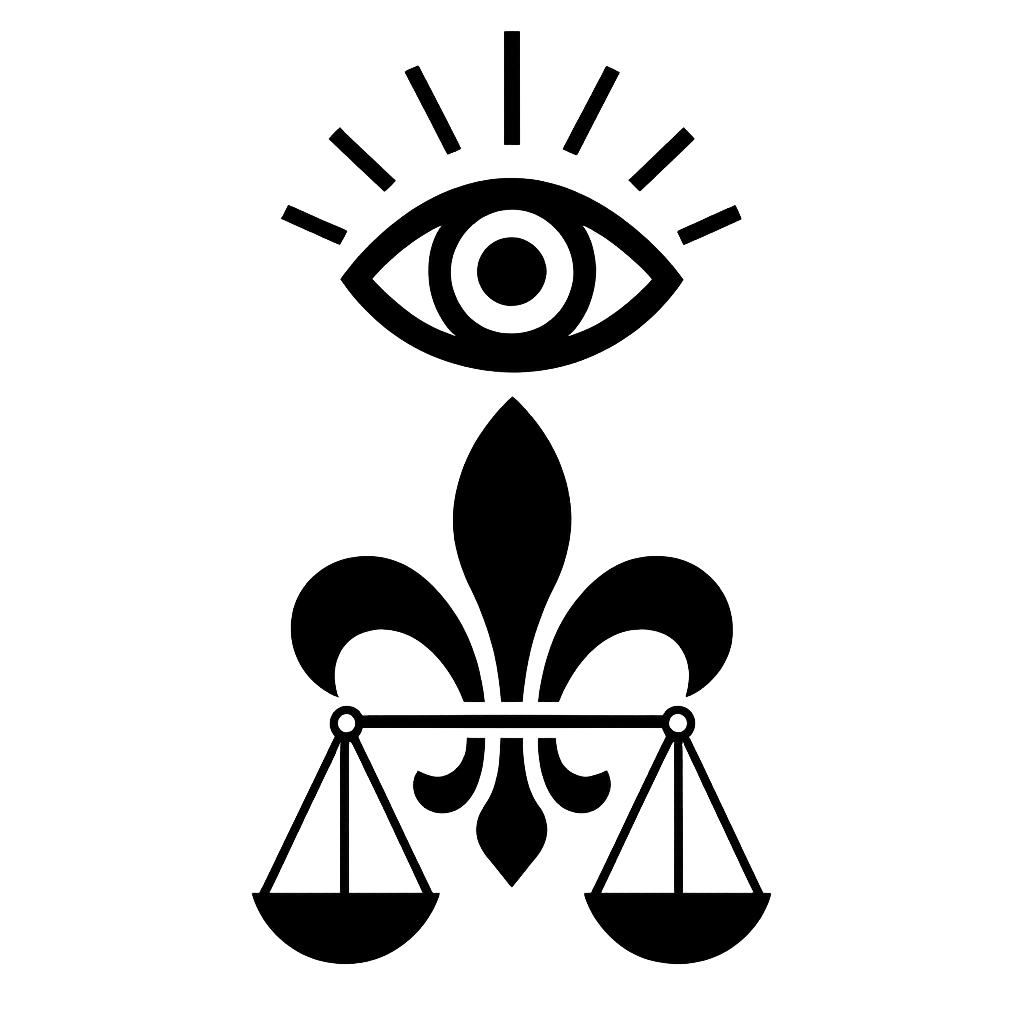Introduction: The Power of Identity
Identity is a multi-faceted concept, representing a complex interplay of culture, history, and personal experiences that shape how individuals perceive themselves and how they are perceived by others. For many, including those of us of Creole descent, identity is an essential aspect of life, intricately woven into the fabric of daily existence. The Creole identity, distinguished by its unique blend of African, European, and Indigenous ancestry, serves as a powerful testament to resilience and adaptability. The cultural heritage, characterized by a rich tradition of language, food, music, and rituals, not only influences personal identity but also contributes to the broader community narrative.
I am a proud Creole woman from a long lineage of Moun Kréyòl la Lwizyàn (Louisiana Creoles). The significance of embracing my Creole identity extends beyond mere heritage. It encapsulates the struggles and triumphs of ancestors who faced adversities yet managed to retain their cultural essence. Each individual’s experience contributes to this shared history, enriching the understanding of what it means to be Creole. Personal stories are often a reflection of the collective journey, revealing the interconnectedness of family lineage and cultural practices specific to Creole communities. It is through these narratives that individuals can discover facets of their identity that resonate deeply with their life experiences.
As the journey of exploring one’s ancestry begins, the importance of recognizing the diverse influences that shape individual identity becomes evident. Acknowledging the unique aspects of being Creole fosters a deeper appreciation for cultural diversity and promotes resilience in the face of adversity. This exploration not only strengthens one’s personal narrative, but also enhances the sense of belonging within a vibrant tapestry of shared experiences. Through this blog post, I will delve into the significance of Creole identity, exploring both the historical context and personal anecdotes that showcase the enduring legacy of this rich ethnic & cultural heritage.
Understanding Creole Heritage

Creole heritage is a rich tapestry woven from various cultural strands, primarily shaped by the historical interactions between African, European, and Native American peoples. This unique identity emerged in the Caribbean and the southern United States during the colonial period, reflecting the social, economic, and political environments of the time. The word “Creole” itself carries diverse meanings, often denoting individuals born in the colonies with European ancestry while also embracing those with mixed lineage. As a result, the Creole identity embodies a fluid sense of belonging that transcends singular racial classification.
One of the core characteristics of Creole culture is its adaptability. Creole communities evolved distinct languages, foods, music, and religions, influenced by the interactive forces of their ancestry. For instance, the blending of African rhythms and European musical traditions gave birth to genres such as jazz and zydeco, while culinary practices saw the melding of African ingredients with European cooking methods, resulting in diverse and delectable dishes like gumbo and jambalaya. This fusion exemplifies the creativity and resilience inherent in Creole people, as they navigated colonization and slavery to retain aspects of their ancestral traditions while innovating new practices and customs.
In contemporary society, being Creole encompasses more than simply heritage. This identity often serves as a marker of pride and resilience, as individuals reflect on their multicultural roots and contribute to the ongoing narrative of their communities. While Creole identity can sometimes be overshadowed by broader racial categories, it maintains a distinct presence that resists simplification. Too often, individuals are confined to specific ethnic labels, but Creole heritage boasts a complex history that legitimizes its unique status. As such, understanding and embracing this identity fosters a greater appreciation for its diversity and the rich contributions it has made to the fabric of society.
Ancestry and Heritage: A Family Story

Understanding one’s ancestry is a vital component of shaping personal identity. My family lineage embodies a rich tapestry of cultural influences that speak to the resilience and diversity of my Creole heritage. Through thorough ancestry research, I have traced my roots back to various ethnic components, including Native American, Spanish, French, Irish, German, Nigerian, and Congolese origins. Each of these ethnic groups contributes uniquely to the narrative of who I am today.
The Native American influence can be traced back several generations, reflecting a connection to the land and traditions that predate colonial times. The Spanish and French influx during the colonial era introduced not only linguistic diversity but also culinary and artistic expressions that continue to thrive in contemporary Creole culture. The amalgamation of these cultures has fostered a distinct identity characterized by vibrant celebrations, unique culinary practices, and deep-rooted family connections.
Moreover, the Irish and German heritages introduce elements of strength and adaptability, as these immigrant communities navigated challenges and found their place in a new world. The intersection of these ethnic backgrounds reflects a broader narrative of resilience, highlighting the struggles and triumphs of my ancestors. Further exploration into my Nigerian and Congolese roots reveals the deep cultural traditions that have persisted through generations, emphasizing the rich, historical significance of African heritage in shaping my family’s identity.
Each component of my ancestry not only enriches my personal story but also serves as a testament to the enduring legacy of my family’s journey. Through this exploration, I have gained a profound appreciation for the diversity that accompanies my Creole heritage, influencing how I perceive myself and my place within a broader community. This intricate understanding of my family lineage has not only reinforced my identity but also deepened my commitment to honoring and celebrating the multifaceted nature of my background.
The Burdens We Carry: A Reflection on Adversity
Every individual’s journey is marked by the emotional and physical burdens that their ancestors faced, a reality that resonates strongly within my own Creole identity. These burdens, often rooted in historical struggles, manifest in various forms, shaping not only our physical presence but also our mindset and worldview. The legacies handed down through generations encapsulate the pain of adversity and the resilience born from overcoming it. Such legacies intertwine with the identity of many Creole individuals, delivering a profound understanding of both pain and perseverance.
Throughout history, our ancestors faced immense challenges, including colonial oppression, economic hardship, and cultural erasure. Each of these adversities contributed layers to the identity we carry today. The emotional echoes of their struggles can oftentimes be felt in our day-to-day lives, as the weight of their experiences seemingly rests upon our shoulders. This phenomenon is not merely metaphoric; it manifests physically in our expressions, our body language, and even in the scars we bear—whether visible or hidden.
The connection between our appearance and personal history is deeply significant. People may perceive emotions such as strength, vulnerability, or resilience before we even speak a word. This is not coincidental; rather, it is the culmination of ancestral resilience shining through our demeanor and attitudes. As we navigate modern challenges, it becomes increasingly evident that these inherited legacies fortify us. The stories imbued within our experiences allow us to withstand life’s trials, reinforcing our collective identity as a source of strength.
In acknowledgment of these burdens, we can also embrace the resilience they foster. Understanding that our history shapes our identity encourages us to honor our roots while maneuvering forward in strength. The journey through adversity is undoubtedly a shared experience within the Creole community, and through it, we find unity and purpose, emboldened by the enduring spirit of our forebears.
Cultural Symbolism: Hair and Skin as Emblems of Identity
Throughout history, physical attributes such as hair texture and skin color have served as powerful symbols of cultural identity and resilience, particularly within the Creole community. These traits embody a sense of belonging and pride, reflecting a deep connection to ancestry and cultural heritage. For many individuals, their hair and skin are not merely biological characteristics; they represent a celebration of lineage and the multifaceted narratives that each individual carries.
Hair texture, for example, holds significant cultural weight, especially among people of African descent. In the Creole context, natural hair, whether curled, coiled, or locked, can symbolize a rejection of Eurocentric beauty standards and an embrace of one’s true self. It often serves as a form of resistance against historical oppression, empowering individuals to take pride in their unique features. Personal styling choices, such as braiding or adorning hair with traditional accessories, can also serve as a representation of cultural rituals and community identity, instilling a powerful sense of connection to one’s roots.
Moreover, skin color has similarly profound implications in shaping identity. It is a marker of resilience, encapsulating the struggles and triumphs of ancestors who faced systemic racism and discrimination. For many Creole individuals, darker skin tones are associated with strength and historical perseverance, embodying the spirit of survival against adversity. The celebration of all skin tones within the Creole community allows individuals to embrace their uniqueness while fostering a collective cultural pride.
In examining the significance of hair and skin, it becomes clear that these physical characteristics are more than superficial traits; they are emblematic of deeper cultural narratives and serve as constant reminders of resilience and identity. By embracing these symbols, individuals celebrate their heritage, honor their ancestors, and acknowledge the beauty inherent in diversity.
Connection to the Land: Native Roots and Environmental Affinity
The connection to the land is a fundamental aspect of understanding one’s identity, particularly for individuals with Native American ancestry. My journey through this self-discovery has illuminated how deeply intertwined my identity is with the natural environment. The rich heritage of my ancestry carries with it the echoes of generations who held the Earth in reverence, ensuring that nature was celebrated rather than exploited.
Growing up, I found solace in the landscapes around me—lush forests, serene rivers, and vibrant meadows. These natural spaces became more than mere backdrops; they transformed into sanctuaries reflecting the essence of my Native roots. The teachings of my forebears resonate through the whispering trees and the flowing waters, reminding me of the intrinsic bond between humanity and nature. I often reflect on the wisdom imparted by elders who emphasized the importance of maintaining harmony with the environment. This harmony is a critical aspect of our cultural identity, emphasizing sustainable practices that protect the land for future generations.
Animals, as vital components of our ecosystems, evoke a profound sense of connection to my heritage. Observing wildlife not only fosters a sense of belonging but also serves as a reminder of our ancestors’ teachings. The spirituality ingrained in recognizing the interdependence of all living beings reinforces the responsibility I carry to honor my Native roots and our shared environment. Such experiences allow me to grasp the true meaning of stewardship, an essential element in acknowledging the historical struggles of Indigenous peoples who fought for the preservation of their lands and resources.
This spiritual connection to the earth fortifies my identity, serving as a guiding force throughout my journey. By embracing my Creole roots alongside my Native American heritage, I strive to cultivate a deeper appreciation for our ancestral ties and the natural world, reinforcing the timeless lessons that the land imparts.
The Richness of Community: Embracing Diversity
The Creole community is a vibrant tapestry woven from many threads of cultural backgrounds, each contributing unique patterns to the overall design. Within this community, diversity is celebrated, allowing individuals to express their identities without the constraints of conventional categorization. It is essential to recognize that embracing diversity within the Creole experience is not merely an academic exercise; it is a celebration of heritage and shared experiences that nourish the very essence of community life.
In many ways, the strength of the Creole community lies in its ability to encompass a wide range of cultural influences, from African to European and Indigenous traditions. This blend forms a rich narrative that transcends individual backgrounds, fostering a sense of belonging among its members. By rejecting the pressure to conform to conventional definitions of ethnicity or identity, the community allows for an exploration of the self that is both liberating and enriching. Here, individuals are encouraged to embrace all aspects of their heritage, cultivating a deeper understanding of their roots.
Furthermore, the act of embracing one’s Creole identity serves as a powerful testament to resilience. As the community faces various challenges, including cultural erasure and social marginalization, maintaining this diverse identity becomes a form of activism and empowerment. Celebrating differences can transform the narrative, fostering connections that transcend inherent boundaries. This movement toward acceptance and inclusivity strengthens the bonds among community members, promoting a collective identity that honors the myriad experiences and histories present within.
Ultimately, recognizing the richness of diversity within the Creole community enhances the journey toward self-acceptance and solidarity. By fostering an environment where individuality and shared heritage coexist harmoniously, the community not only preserves its cultural wealth but also inspires future generations to embrace their identity fully. In doing so, it renews the commitment toward inclusivity and empowerment, ensuring every voice is heard and celebrated.
Navigating Racial Dynamics: A Personal Perspective
Understanding racial identity in America often requires a nuanced approach, particularly for individuals who embody multiple identities. My Creole identity, a blend of African, French, Spanish, and Native American heritages, positions me in a unique social landscape. It invites reflections on how I interact with others, shaping both perception and experience. Recognized as Black yet distinctively Creole, I encounter a complex tapestry where racial dynamics play a vital role in societal engagements.
In various settings, I find that being identified as Black can lead to assumptions about my experiences, often lacking the recognition of my Creole background. This has become apparent through conversations and social interactions where others may inadvertently reduce my identity to a single narrative. This simplification ignores the rich cultural heritage that informs my worldview. The intersection of Creole and Black identity allows me to appreciate the diversity within the Black community, as well as the unique challenges that come from being part of multiple racial narratives.
The disparities among Black women, in particular, are profound and often overlooked. While many women might share similar racial identifiers, their lived experiences can vary significantly due to factors such as culture, geographical locations, and social class. My Creole background has gifted me with a sense of dual belonging. I often oscillate between spaces, navigating cultural expectations and norms that differ widely from mainstream interpretations of Black identity, enabling me to foster understanding and build bridges across diverse groups.
This continual navigation requires a strong sense of self and resilience. Embracing my Creole identity has not only deepened my understanding of my own heritage but has also highlighted the necessity for broader conversations about racial diversity in America. The intersectionality of my identities enriches my perspective, enabling me to advocate for more inclusive dialogues surrounding race and identity.
Carrying Forward: Lessons from Ancestry
Delving into the intricacies of my ancestry has illuminated a profound understanding of resilience and the inherent wisdom that transcends generations. Throughout my journey, I discovered that descendants often carry the weight of their ancestry, but this burden can transform into a source of strength and inspiration. The trials faced by ancestors in navigating societal challenges exemplify a remarkable tenacity that serves as a guiding light for individuals today.
Each encounter and story shared within my family has imparted invaluable lessons that resonate deeply. The experience of overcoming adversity is a recurring theme within my lineage. This understanding encourages me to approach my own challenges with renewed vigor and determination. It becomes clear that resilience is not merely an individual characteristic but a collective inheritance from those who came before us. By embracing these lessons, I recognize that I am not alone in my struggles; rather, I stand on the shoulders of giants whose sacrifices paved the way for me.
The wisdom drawn from this ancestral heritage encourages me to cultivate a sense of community, fostering connections with others who share similar backgrounds. These relationships serve to reinforce shared values such as perseverance and unity. Each conversation I have with others who celebrate a Creole identity cements an understanding that we are part of a larger narrative, one that is marked by perseverance through adversity. Furthermore, I learn to appreciate the cultural richness that comes from our diverse histories.
In 2015, I tried the Ancestry.com DNA Kit – I was amazed! While it is not 100%, it is amazing to see not only see where my people originated, but there immigration and how it came to make me. In reflecting on my ancestry and my ancestors, I have gained not only a clearer sense of identity, but also a commitment to honor my roots. The lessons learned remind me to approach life with gratitude and hope. By sharing these insights, it is my hope that others may be inspired to explore their own ancestry and heritage, recognizing the strength that lies within their DNA and carrying it forward into future generations.


*AncestryDNA®
gives you much more than just the places you’re from.
With precise geographic detail and clear-cut historical insights, we can connect you to the places in the world where your story started—from unique regions to living relatives.*

Leave a Reply